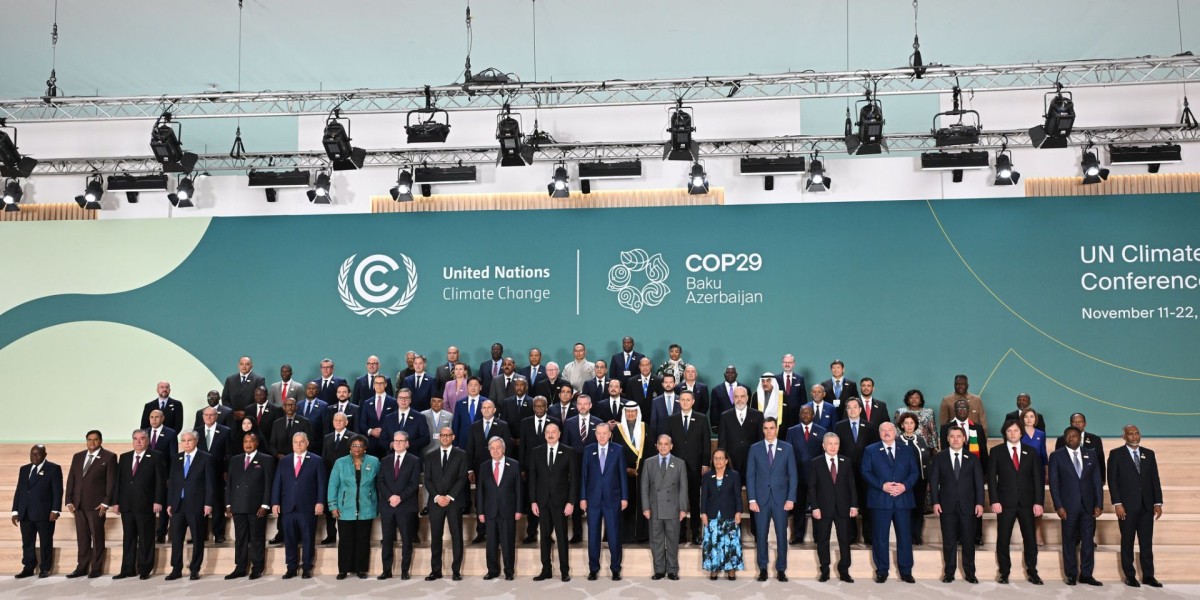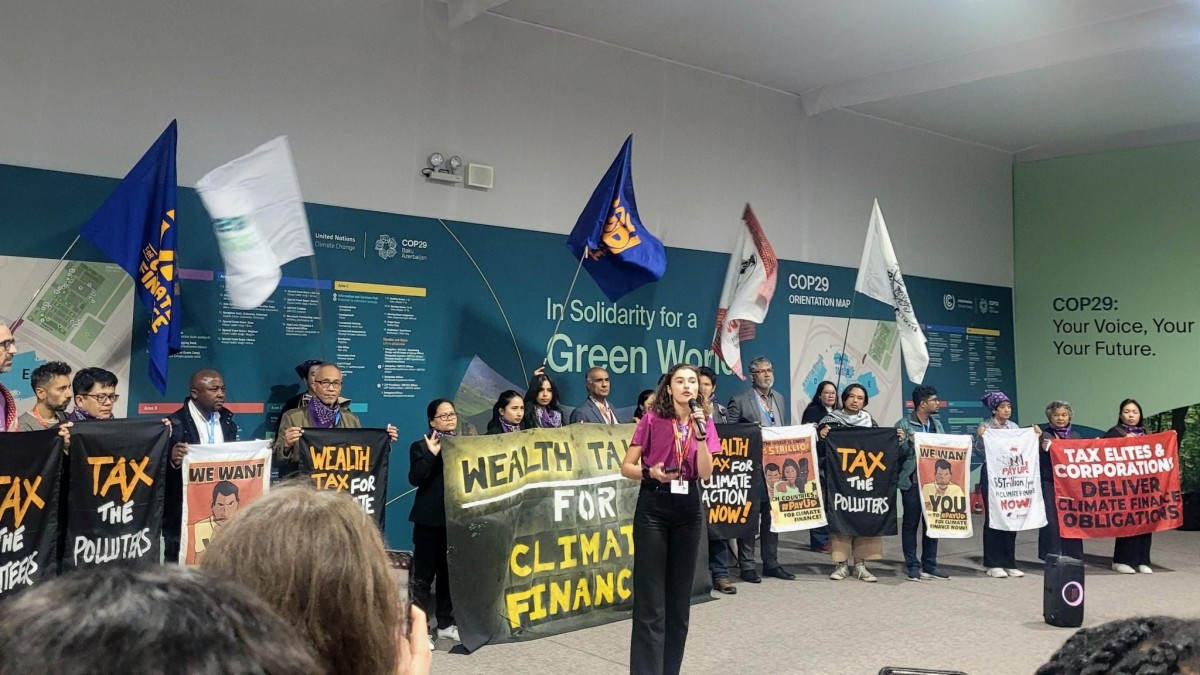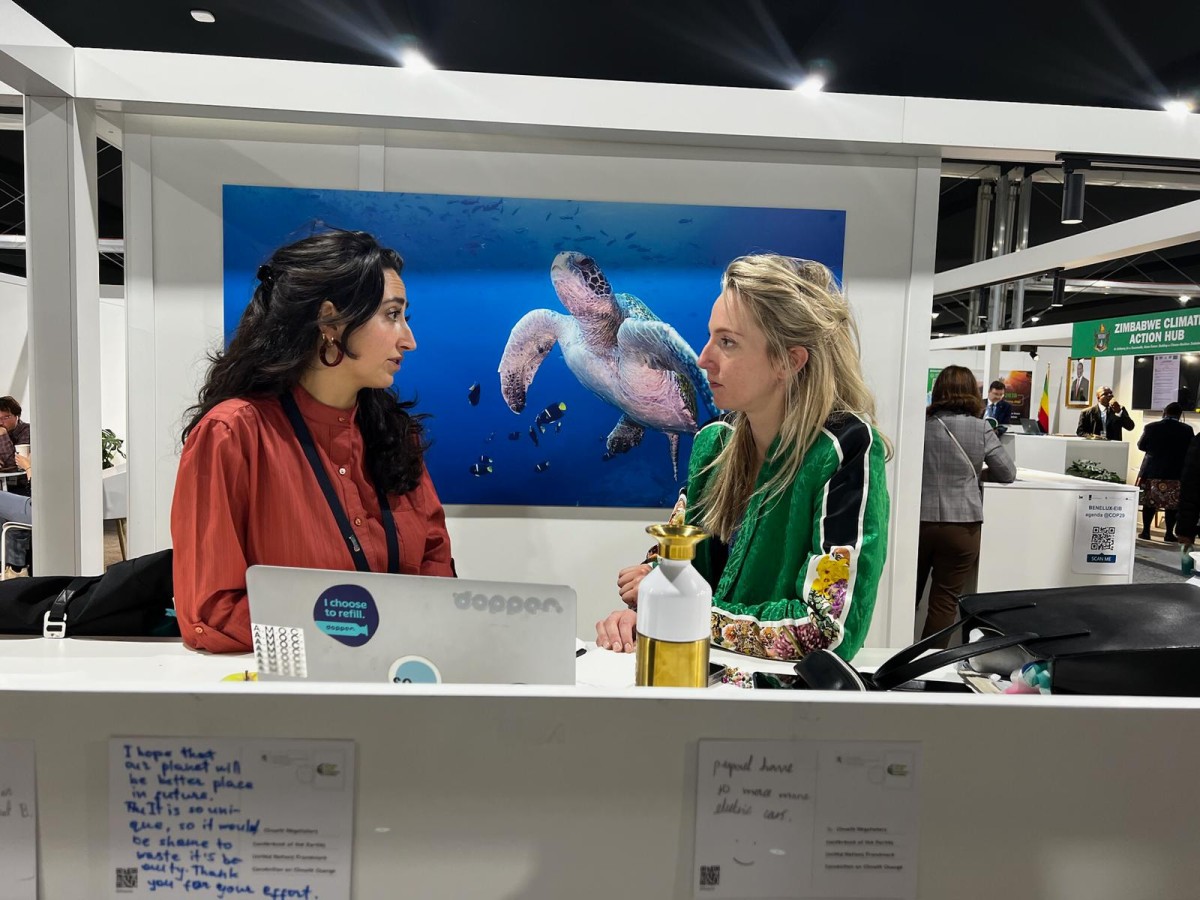UN Climate Summit: time for the Global North to put their money where their mouth is
As the second and final week of the UN Climate Summit COP29 starts today, we look back to the first week with Simavi's Policy and Advocacy officer Esin Erdoğan. She is in Baku to follow the negotiations, specifically the ones on climate adaptation.
It seemed like an ominous sign: last week it became clear that none of the leaders of the 13 biggest emitters of carbon dioxide (USA, China, EU, India, Germany and Brazil among others) would appear at COP29 in Baku. Even if they don’t lead the actual negotiations on behalf of their countries, it is still regrettable that they are not there to show their commitment. The same goes for our own prime minister Dick Schoof.
Deal on climate finance goal
It might have to do with the top priority of this year’s summit: to land a deal to boost funding for climate action in developing countries. It’s a deal that will have to deliver a new climate finance goal, which must be in "trillions, not billions!" as our global collective Civil Society slogan for COP29 clearly states.

To achieve climate justice, this climate finance must be in grants, new and additional to ODA and accessible (easier and faster) to the most vulnerable and climate affected people.The finance goal should amount to at least 1 trillion dollars a year. of this, member states should designate at least 400 billion dollar in grants for adaptation alone.
Almost nothing yet achieved
Looking back at the first week of the Climate Summit, Esin Erdoğan says: ‘So much has happened while almost nothing is achieved.’ Unfortunately, negotiations between the 198 parties (197 states and the EU) are stuck as they can't agree on a way forward.

Not only is this disastrous for climate action in terms of mitigation, adaptation and loss & damage, but it also jeopardizes multilateralism: if countries cannot agree on the finance goal, it means they don't deliver on the binding commitments they have previously made collectively. And this can cause irreversible damage to mutual trust.
Hold countries accountable
At the same time, talks on adaptation have reached a wall too, mainly -and also- under the topic of finance. It is important to hold countries accountable for their provided support in adaptation under the Global Goal on Adaptation, by committing to financial targets.
Read everything about COP29 in Baku
What is it and what needs to happen
Water and sanitation are one of 7 priorities under this global goal and to ensure that adaptation action on water is financed (and gender responsive!), it must be written down as such. Right now, this is not favoured by countries most responsible for climate change.
Gender equality
As concerning, neither is gender equality reflected effectively so far. Maybe this is not surprising, considering that only 8 out of the 78 world leader present at the World Leaders Summit are female.

The third biggest challenge in the adaptation negotiations is the involvement of private finance sources. Under no circumstances do we find private finance suitable to drive adaptation action, while developed countries insist this to be included in agreements about nation's adaptation plans and practices.
Thus, in Baku we witnessed developed countries to not put their money where their mouth is. It can't be simpler: without adaptation finance, there is no adaption action.


